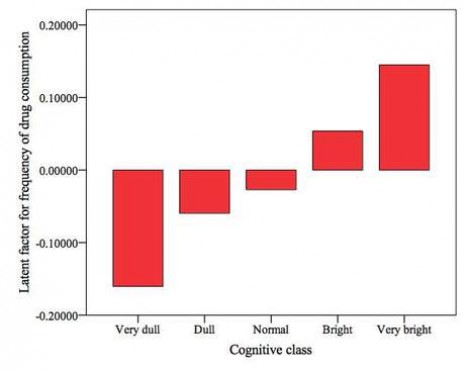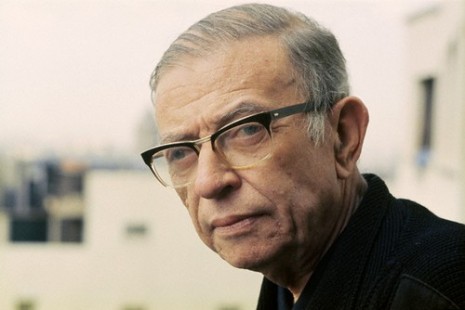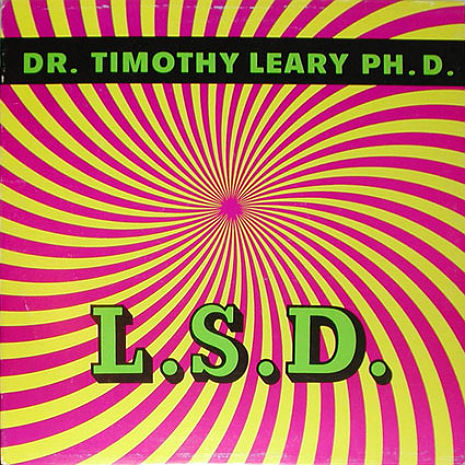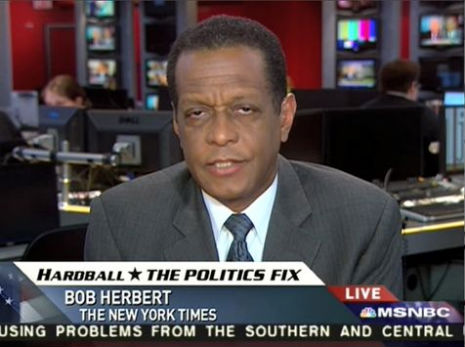
Satoshi Kanazawa is an evolutionary psychologist at LSE and the coauthor of Why Beautiful People Have More Daughters (a book, I highly recommend, no pun intended). He also has a great blog on Psychology Today’s website.
Kanazawa has a theory, which he calls the “Savanna-IQ Interaction Hypothesis” which goes something like this: “Intelligence” evolved as a coping mechanism of sorts (maybe stress-related?) to deal with “evolutionary novelties”—that is to say, to help humankind respond to things in their environment to which they were previously, as a species, unaccustomed to. An adaptation strategy, in other words.
Translation: Smart folk are more likely to try “new” things and to seek out novel experiences. Like drugs.
How else to explain toad licking? Someone, uh, “smart” had to figure that one out, originally, right? Someone intelligent had to come up with the idea to synthesize opium into heroin, yes? Yes.
But to be clear, and not to misrepresent his theories, Kanazawa clearly states (in the subtitle) that “Intelligent people don’t always do the right thing,” either…
Consistent with the prediction of the Hypothesis, the analysis of the National Child Development Study shows that more intelligent children in the United Kingdom are more likely to grow up to consume psychoactive drugs than less intelligent children. Net of sex, religion, religiosity, marital status, number of children, education, earnings, depression, satisfaction with life, social class at birth, mother’s education, and father’s education, British children who are more intelligent before the age of 16 are more likely to consume psychoactive drugs at age 42 than less intelligent children.
The following graph shows the association between childhood general intelligence and the latent factor for the consumption of psychoactive drugs, constructed from indicators for the consumption of 13 different types of psychoactive drugs (cannabis, ecstasy, amphetamines, LSD, amyl nitrate, magic mushrooms, cocaine, temazepan, semeron, ketamine, crack, heroin, and methadone). As you can see, there is a clear monotonic association between childhood general intelligence and adult consumption of psychoactive drugs. “Very bright” individuals (with IQs above 125) are roughly three-tenths of a standard deviation more likely to consume psychoactive drugs than “very dull” individuals (with IQs below 75).

Shit, I must’ve been pretty smart because I purt’near crossed almost everything off this list (except for the sleeping pills) by the time I was seventeen!
Kanazawa concludes:
Consistent with the prediction of the Hypothesis, the analysis of the National Child Development Study shows that more intelligent children in the United Kingdom are more likely to grow up to consume psychoactive drugs than less intelligent children. ... “Very bright” individuals (with IQs above 125) are roughly three-tenths of a standard deviation more likely to consume psychoactive drugs than “very dull” individuals (with IQs below 75).
If that pattern holds across societies, then it runs directly counter to a lot of our preconceived notions about both intelligence and drug use:
People—scientists and civilians alike—often associate intelligence with positive life outcomes. The fact that more intelligent individuals are more likely to consume alcohol, tobacco, and psychoactive drugs tampers this universally positive view of intelligence and intelligent individuals. Intelligent people don’t always do the right thing, only the evolutionarily novel thing.
Speaking for myself—and I wasn’t a very innocent child by any stretch of the imagination—I was already trying to smoke banana peels (“They call it ‘Mellow Yellow’) and consuming heaping spoonfuls of freshly ground nutmeg when I was just ten-years-old. I got the banana peels idea, yes, from reading about the Donovan song and its supposed “hidden meaning.” The nutmeg idea came from the infamous appendix of William Burroughs’ Naked Lunch, which I was able to pick up at the local mall (When my aunt, visiting from Chicago, caught wind of what my 4th grade reading material was, she was shocked—and told my mother so—but little did she know that I was already at that age actively trying my damnedest to get my hands on some real drugs).
This study explains a lot, I think. An awful lot!
Why Intelligent People Use More Drugs (Psychology Today)















